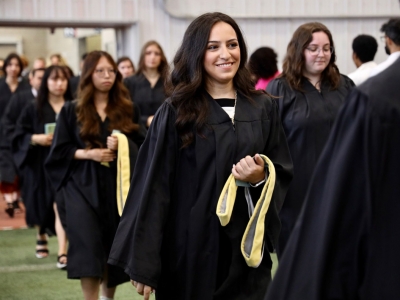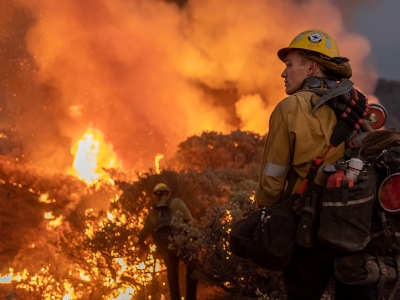Four Carleton University faculty members received $25,000 each from the Social Sciences and Humanities Research Council (SSHRC) Partnership Engage Grants to support timely research into work and family life during the COVID-19 pandemic, the role of government policies in supporting economic recovery, an investigation of the Acadian Métis, and risk tolerance and leisure activities during COVID-19.
“Carleton has a long history of supporting cutting-edge research across disciplines which is vital when tackling complex public health and wellness challenges,” said Rafik Goubran, vice-president (Research and International). “We are proud of these researchers whose work has the potential to significantly improve the lives of Canadians and we are grateful to SSHRC for their continued support and recognition.”
In partnership with the Canadian Mental Health Association (CMHA) Ontario, Linda Duxbury, professor in the Sprott School of Business, along with Sprott post-doctoral fellow Anita Grace, will be using SSHRC funding to investigate the pandemic’s impact on work and family life, specifically on the sandwich generation — adults caring for younger children and aging parents — who are balancing competing demands of paid employment, childcare and eldercare.
Duxbury’s investigation is designed to help researchers, mental health practitioners and policy-makers better understand how “sandwiched’’ employees are adapting and managing daily lives that have been radically challenged by COVID-19. Results from this study will aid academics and practitioners working in the work-life, employee well-being, communication, stress and coping domains, as well as governments tasked with making decisions impacting all Canadians during the pandemic and other crises.
The outbreak of the coronavirus has unleashed a health crisis not seen in living memory. In many ways, COVID-19 resembles a global natural disaster with over 500,000 deaths. Governments and public authorities have taken necessary actions like lockdowns, closures and stay-at-home orders to slow and contain the spread of the COVID-19. Hashmat Khan, professor in the Department of Economics, in partnership with the Bank of Canada and the University of Navarra (Spain), is looking at the gap between epidemiological models of COVID-19 and state-of-the-art macroeconomic models used for policy analysis and advice. Given the interacting economic and health impacts of COVID-19, there is an urgent need for this joint study looking at public health actions, economic activity and the impact of alternative health and economic outcomes on Canadians.
Sebastien Malette, professor in the Department of Law and Legal Studies, will use this new SSHRC funding to begin a genealogical and ethnological investigation of the Acadian Métis of Nova Scotia. Researchers from Carleton, interdisciplinary studies researchers from Royal Roads University, and members of the Association des Acadien-Métis Souriquois (AAMS) Indigenous community will document and explore the ancestral and societal connections between Acadian Métis families located in southwest Nova Scotia.
Indigenous rights of Acadian Métis, as outlined in section 35 of the Constitution Act, 1982, are currently not recognized in Nova Scotia. This project will provide vital academic research to support access to justice for these communities and eventual governmental recognition for the Acadian Métis.
With millions of confirmed cases of COVID-19 affecting the world’s population, governments across the globe have employed strict policies to limit the spread of the disease. Policies involve public health measures that limit social contact, which includes shuttering health clubs, gyms and other leisure activities that require close physical proximity. Dale Spencer, professor in the Department of Law and Legal Studies , will look at links between recreational activities and risk tolerance during the pandemic.
Through a partnership with local gym, CrossFit Bytown, Spencer’s research will explore the implications of social distancing to address COVID-19’s impact on peoples’ lives, with a focus on the absence and modification of CrossFit practices that are central to participant’s identities and community, and their conceptions of health and risk tolerance.
Media Contact
Steven Reid
Media Relations Officer
Carleton University
613-265-6613
Steven.Reid3@carleton.ca
Follow us on Twitter: www.twitter.com/Cunewsroom
COVID 19 Updates: https://newsroom.carleton.ca/coronavirus-covid-19/messages/
Monday, September 21, 2020 in News Releases
Share: Twitter, Facebook



